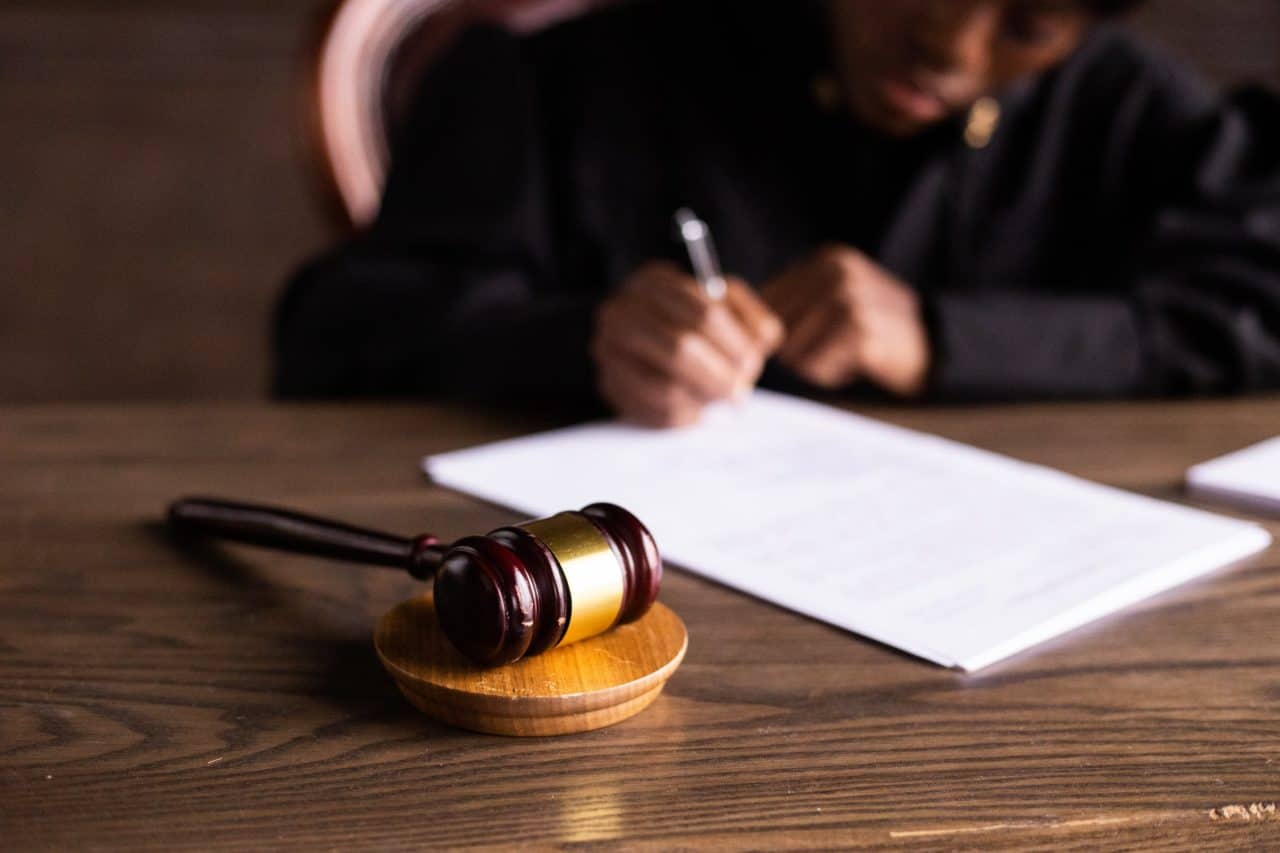For felons just starting through the legal process, they may face procedures that they are not familiar with.
One of these is a felony indictment.
What exactly is that?
Let’s look at this and understand its meaning and significance.
Contents
What Is an Indictment?
In legal proceedings, an indictment is “a charge of a serious crime voted by a grand jury based upon a proposed charge, witnesses’ testimony and other evidence presented by the public prosecutor (District Attorney).”
In other words, an indictment is a written accusation presented before a judge in court that someone has committed a crime.
It may be because of something that person did or even failed to do under the law.
An indictment indicates that the process is moving forward.
What Is a Felony Indictment?
A felony indictment is a statement regarding a felony crime that is usually read before a judge at a hearing, which is sometimes called a felony arraignment on the indictment.
Since most serious crimes are classified as a felony, most indictments are felony indictments.
The purpose of a felony indictment is to inform you of the charges so that your legal counsel can prepare a defense.
If you have been indicted, that cannot be used against you at trial.
It is not allowed to be evidence against you.
While it doesn’t seem like it at the time, a felony indictment is a form of protection for you as a suspect.
You are entitled to not be prosecuted until a Grand Jury has determined that there is enough evidence to indicate criminal prosecution.
Who Files a Felony Indictment?
While it might seem like a simple question, the answer is not what you might expect.
The prosecutor files criminal charges, but this is not the same as an indictment.
A felony charge is filed by the prosecution after evidence has been collected and reviewed by the prosecutor.
The prosecutor then decides if there is enough evidence to indicate probable cause that you as the accused have committed that crime.
When you are charged with a felony, the state has to present “probable cause” to show that a crime has been committed and that the person in question committed it.
They present their evidence to a grand jury without opposition, who will decide whether to issue or file an indictment.
This step is guaranteed under the Fifth Amendment which states that “No person shall be held to answer for a capital or otherwise infamous crime, unless on presentation of a grand jury…”
A grand jury is different from the type of jury (petit jury) that hears evidence in a trial before a judge.
A grand jury is a group of usually 16 individuals who will convene in the courtroom to hear evidence relating to the probability that a defendant might have committed a crime (usually a felony).
Typically, a grand jury is used for federal crime proceedings, but not always in state crimes.
Some states don’t want to make use of a grand jury. Instead they prefer to employ alternative methods, making the decision to go to court or not through a preliminary hearing.
Unlike a regular trial in which the jury verdict upon hearing the evidence must be unanimous to convict a defendant, a grand jury need only have a majority of the panel (usually nine) vote in favor of an indictment
If the grand jury votes to indict, it returns what is termed a “true bill.” Otherwise, it returns a “no bill.”
When Is a Felony Indictment Filed?
A felony indictment is filed after an alleged crime has taken place, a suspect is arrested.
The prosecutor assigned to that case then decides what criminal charges to file.

Sometimes a case goes to a preliminary hearing, where a judge decides if there is enough evidence to proceed.
Cases can also start when a grand jury issues a criminal indictment.
The prosecutor has a certain amount of time to bring an indictment through use of a grand jury.
This depends on the case and the circumstances involved.
Typically, the prosecutor will determine that the case should be charged and file a complaint, decide that the case should go to a grand jury, which will decide what charges, if any, to file, or decide not to pursue the case for a lack of evidence.
Can You Be Indicted Without Being Arrested?
An indictment cannot be filed by the grand jury until an arrest has been made.
The legal system indicates that you must first be arrested on suspicion of committing a crime before the process can begin.
If you are just suspected of having committed a crime, you cannot be indicted until an arrest has been made.
It is the arrest that sets things in motion to decide whether a crime has been committed and whether you as the defendant appear to have carried out the crime.
Is a Felony Indictment Required?
In the 19th century, some states eliminated grand juries and authorized the prosecution of all crimes through the provided information only.
Most states retain grand juries at the discretion of the prosecutor but the accused has no right to have the charges reviewed by a grand jury.
Even if the grand jury returns a “no bill,” the case isn’t necessarily closed.
Depending on the law in the jurisdiction, the prosecutor might have the right to return to the same grand jury with more evidence.
He or she could present the same evidence to a second grand jury or bypass the grand jury altogether and file a criminal complaint.
What Happens After a Felony Indictment Is Filed?
When an indictment is filed by the grand jury, you go to the next step of the legal process.
This means appearing in front of a judge, where you will be arraigned.
This is when the judge will advise you of the charges, let you know the maximum penalties, and your attorney will enter a plea of “not guilty.”
At that point, the judge sets bond, as well as a trial date where he or she will make sure the defense receives all evidence.
How Long After a Felony Indictment Is a Trial?
After a felony indictment has been handed down, both sides will gather evidence to present in court.
How long after a felony indictment before a trial takes place will depend on how long it takes for the prosecution to collect all evidence and for your defense to prepare its defense case.
Now the Sixth Amendment does have something to say about that.
The Sixth Amendment guarantees an accused the right to a speedy trial.
This is still open to interpretation though.
It will be important to stay in touch with your attorney to make sure that there are no unnecessary delays.
After all, your life will be on hold throughout the legal process.
You want to get an answer as soon as possible to know what your future holds.
How to Prepare For an Indictment
Now that you have been arrested, you need to prepare for your court appearance in which you will find out the results of the indictment proceedings.
Of course, if possible, take the opportunity to meet with an attorney.
That way you can understand in advance what the charges are likely to be.
Then you won’t have to wonder what you will face in court.
Take the time to educate yourself about the legal process that will take place.
You can have the opportunity to speak with your attorney and go over what happened that led to your arrest and any felony indictment.
You can also have the opportunity to talk with your family and friends to ensure their support.
You can let them know what is happening to help prepare them for what you and they will have to deal with.
It is always good to be prepared and not have any unpleasant surprises.
So, what do you think about this article about what a felony indictment means? Have you or someone you know had a felony indictment? What was that like and what happened? Please tell us in the comments below.


